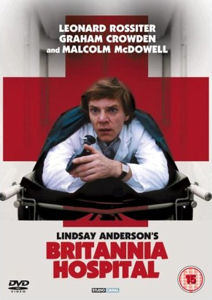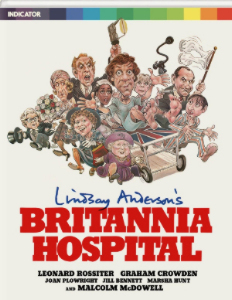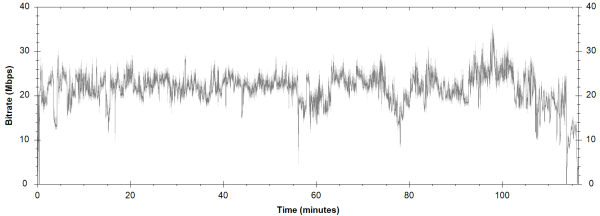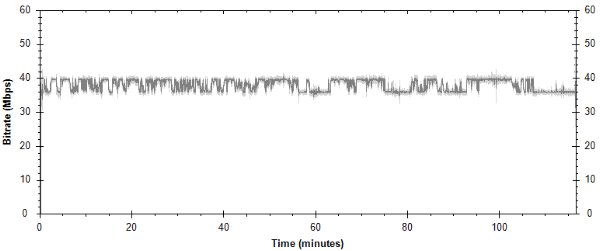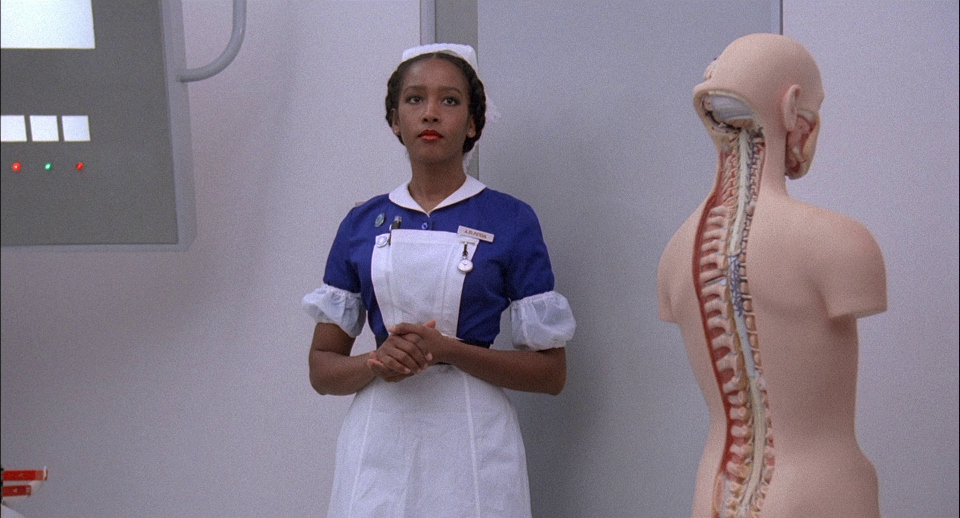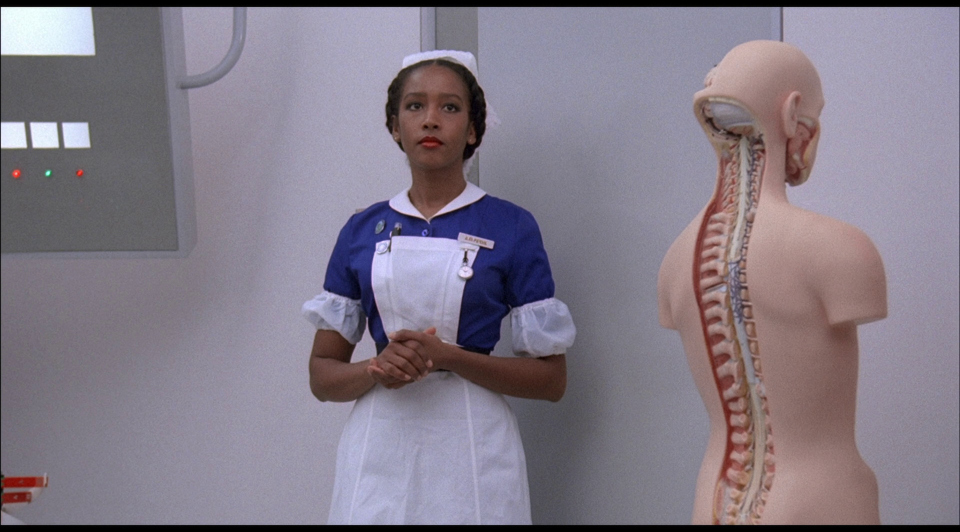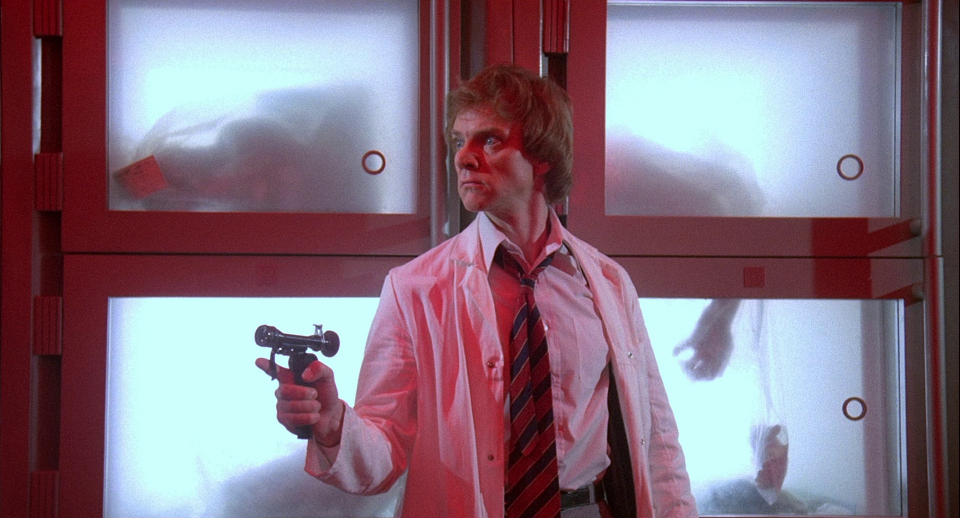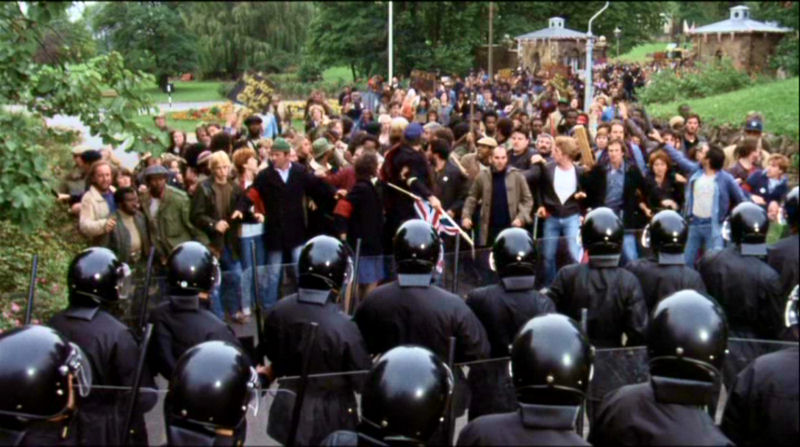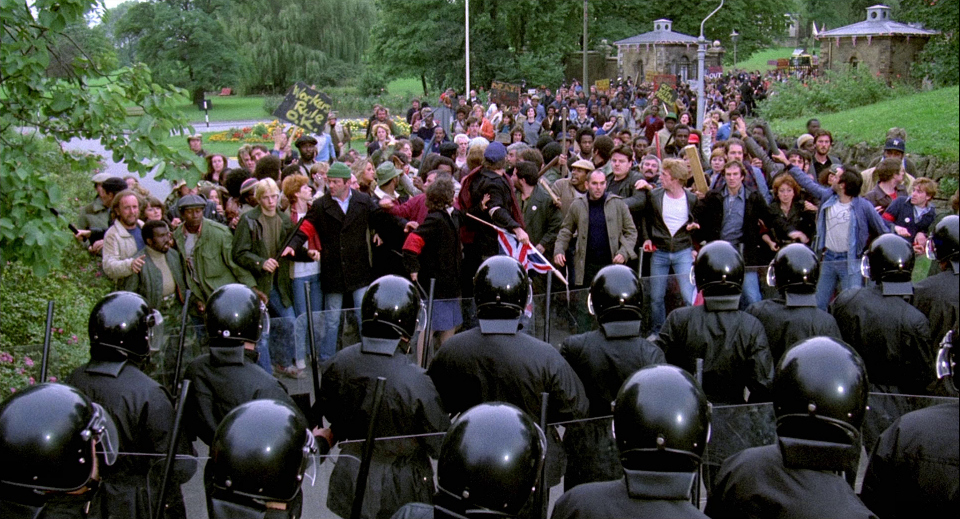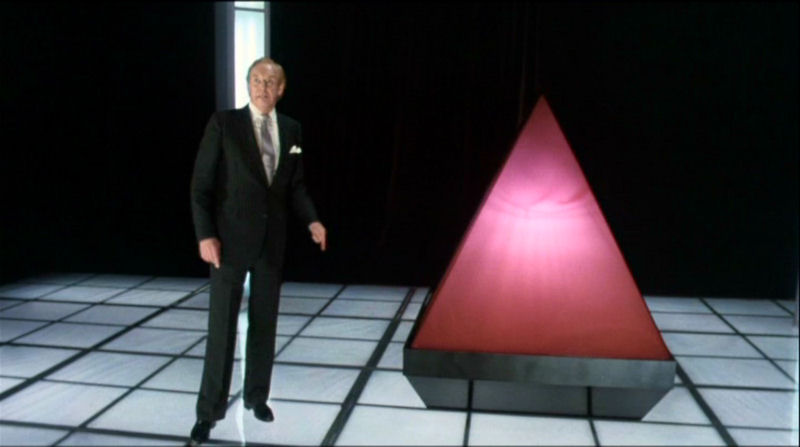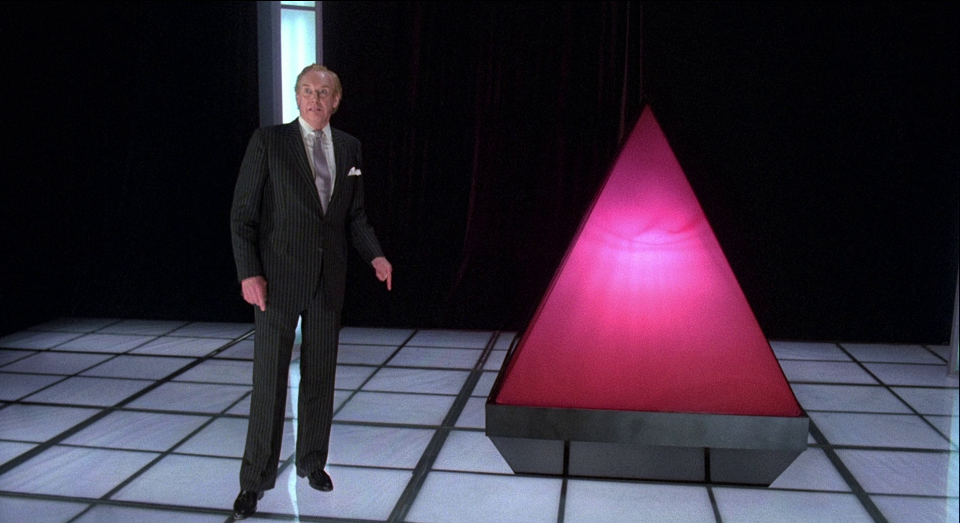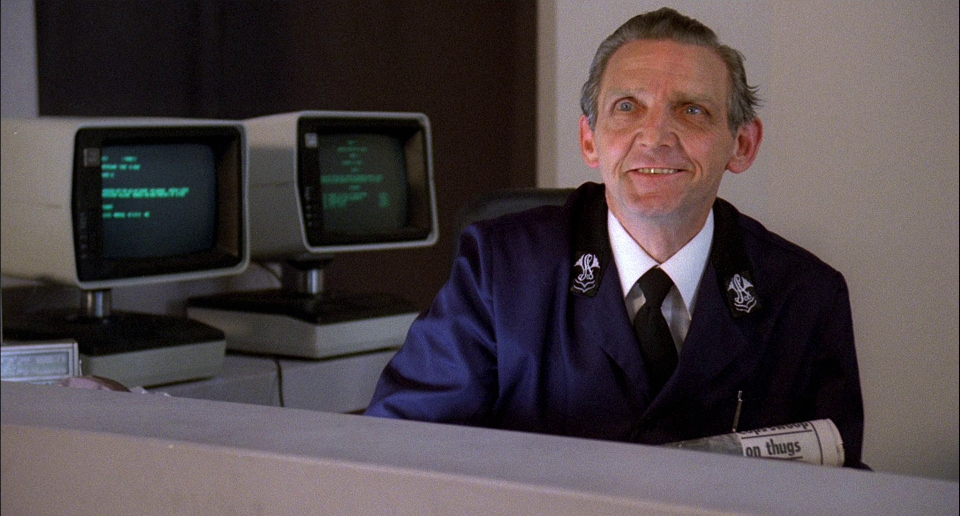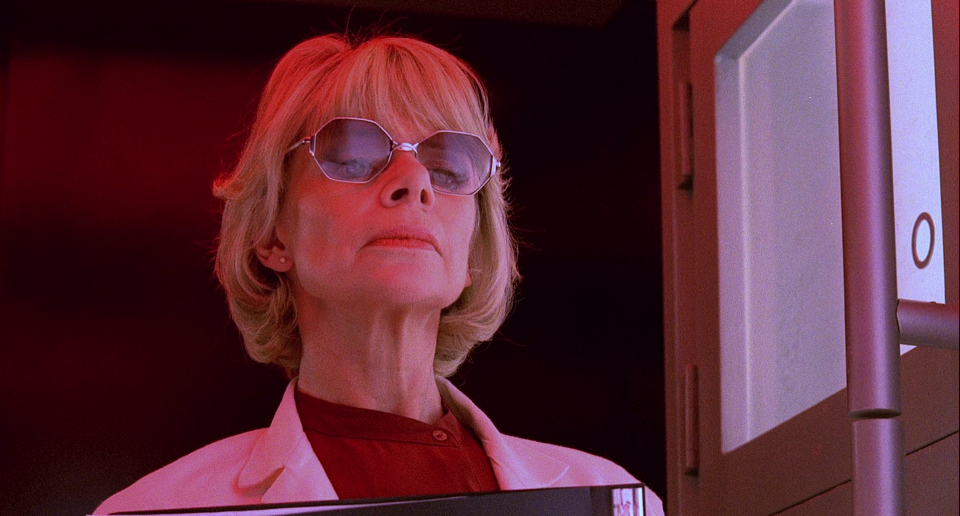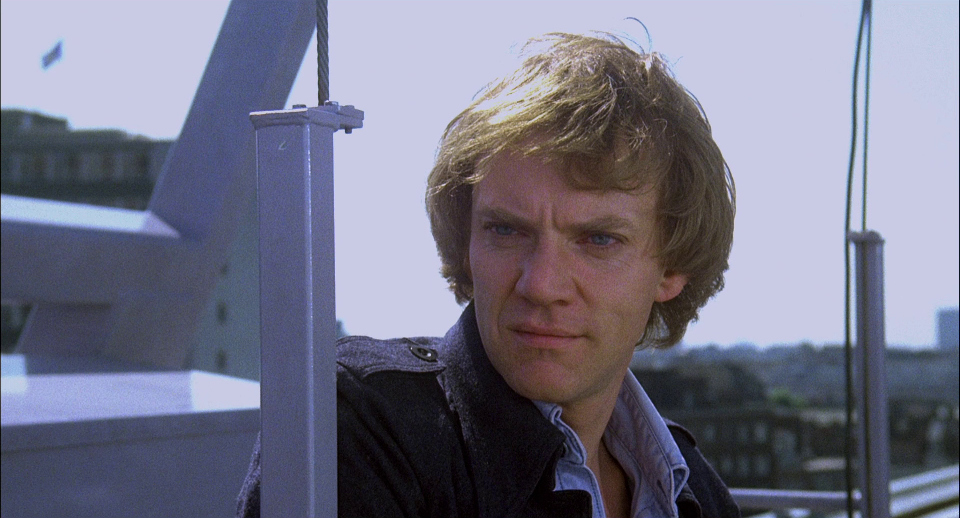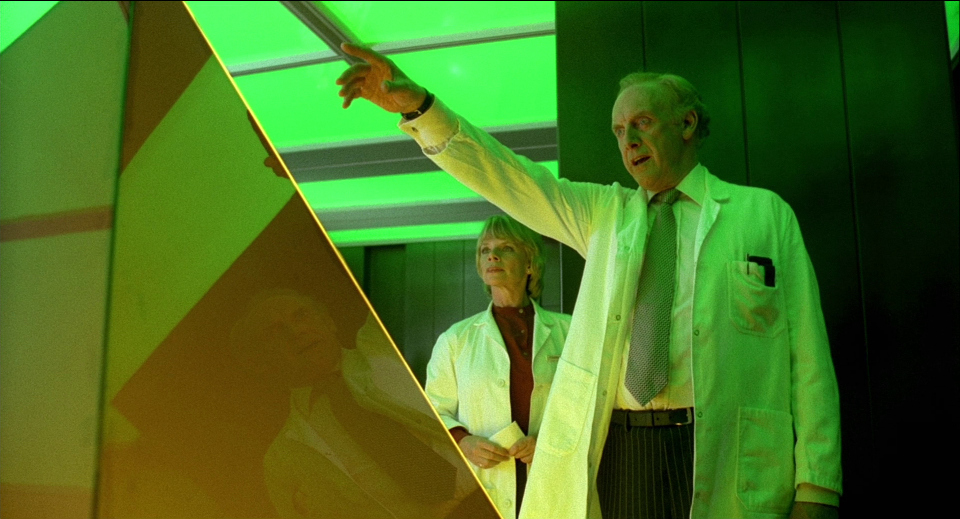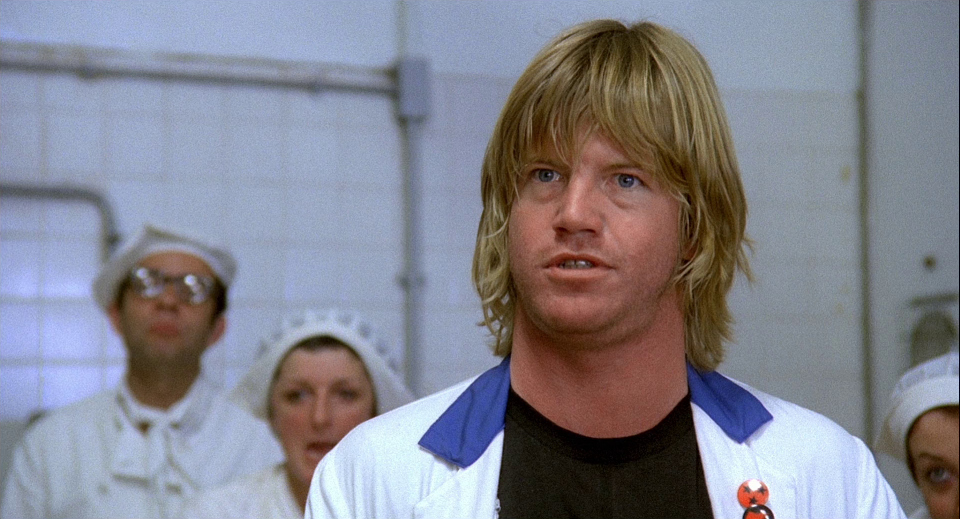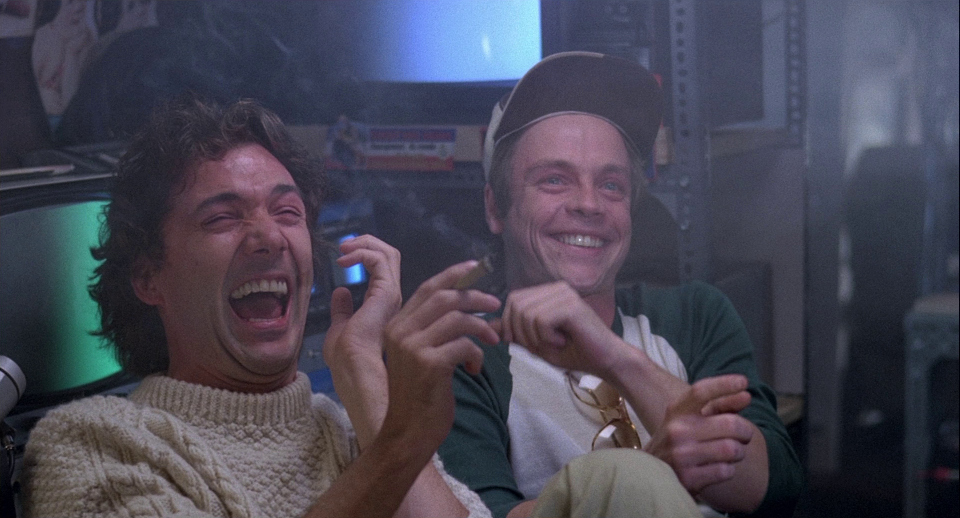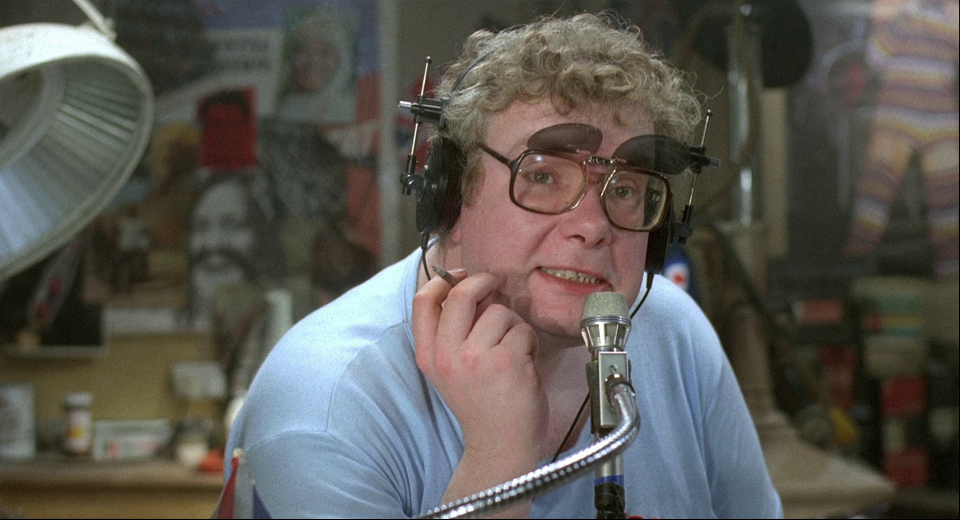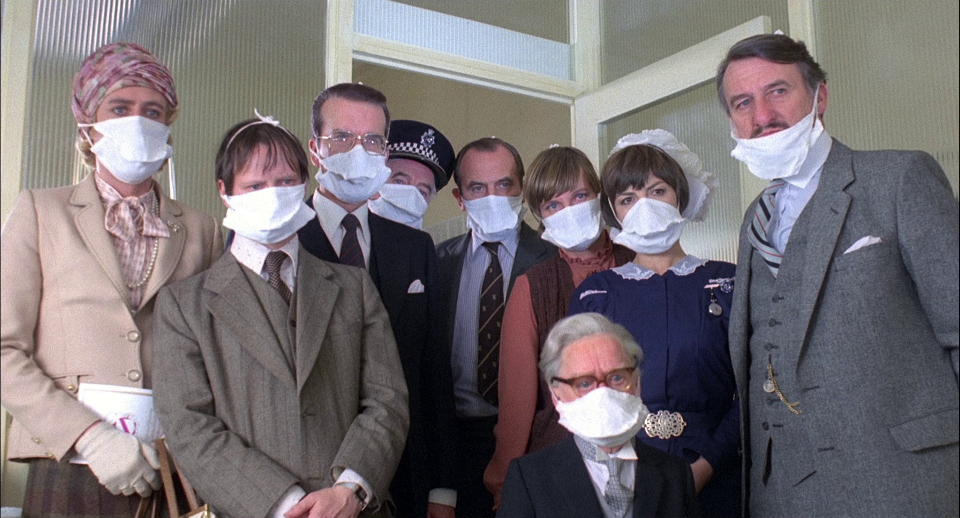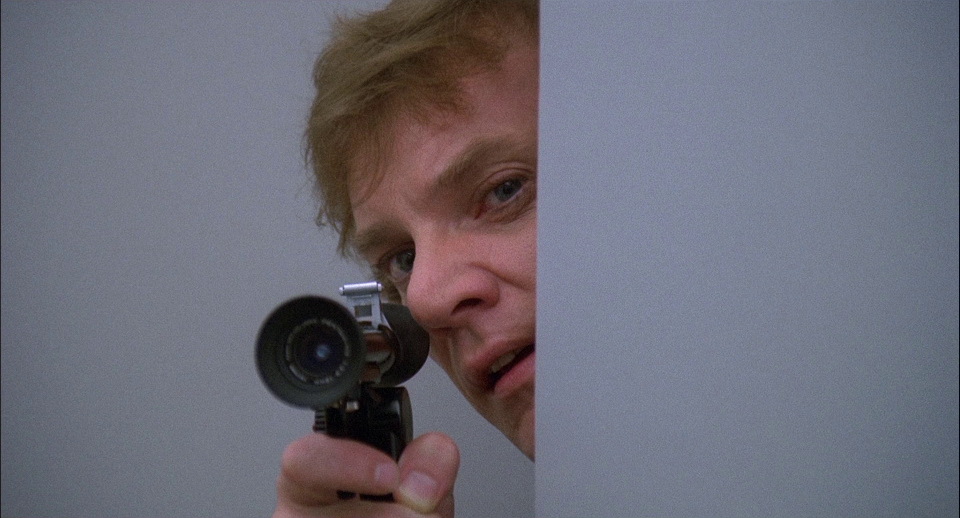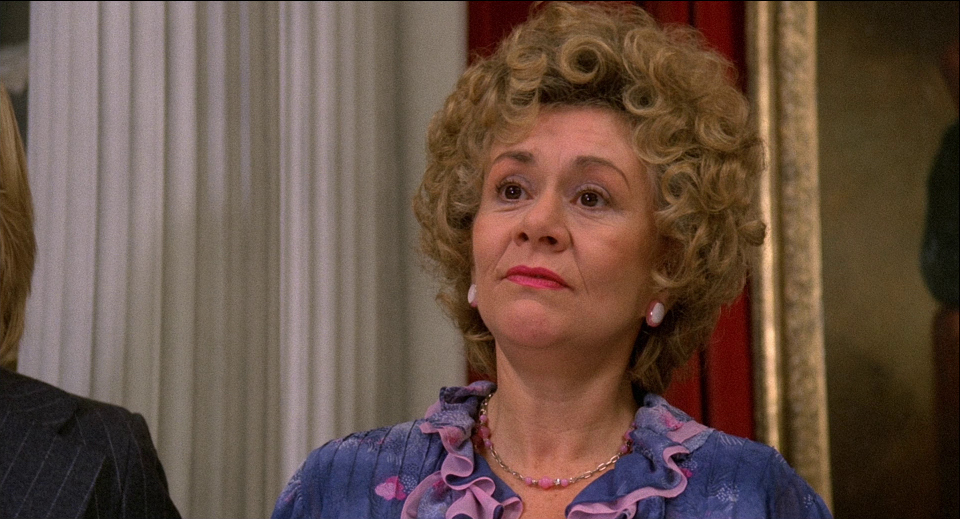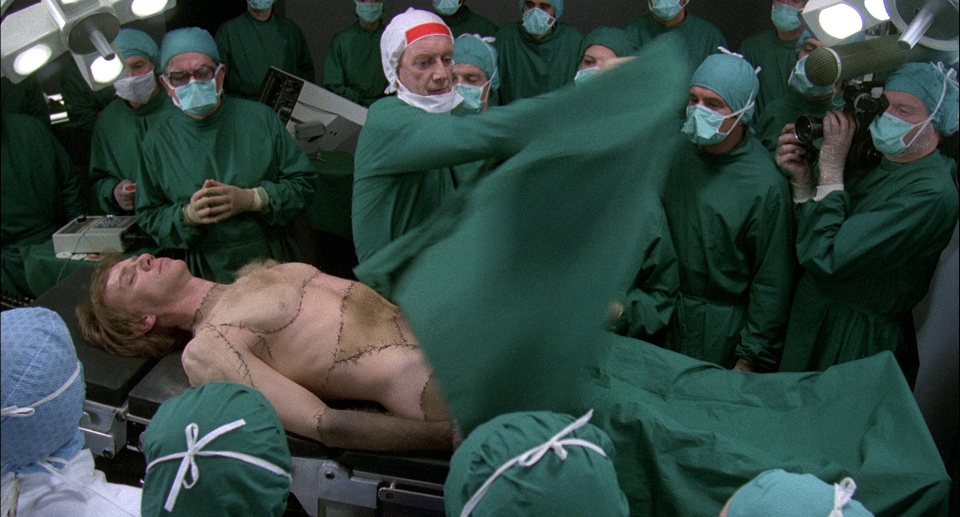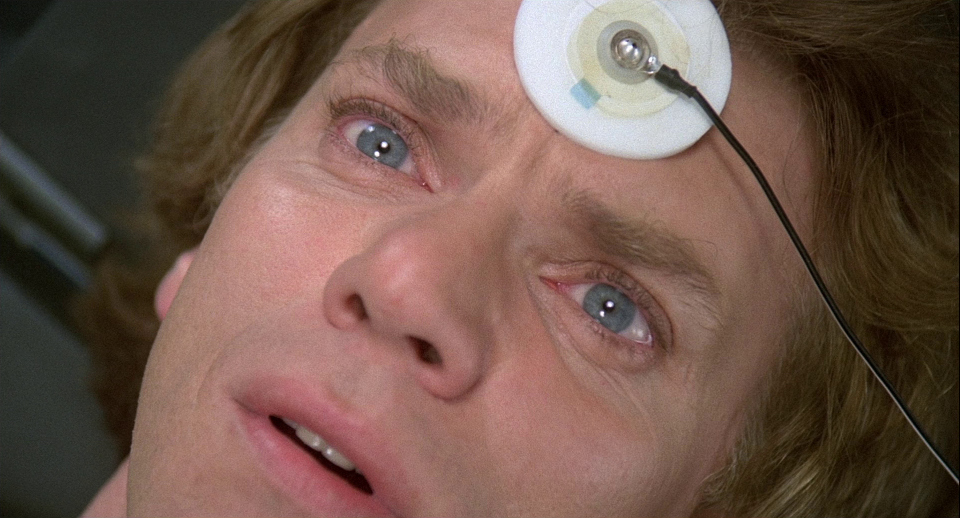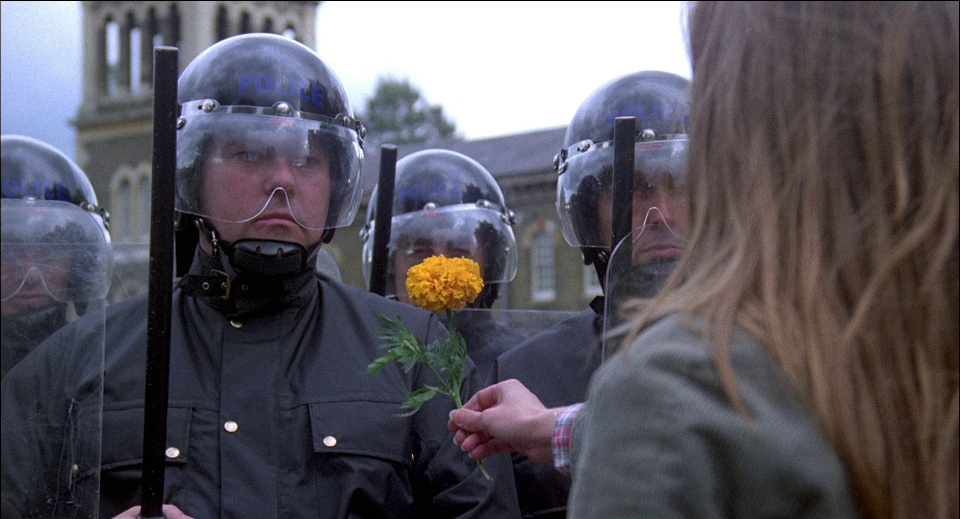| Firstly, a HUGE thanks to our Patreon supporters. Your generosity touches me deeply. These supporters have become the single biggest contributing factor to the survival of DVDBeaver. Your assistance has become essential. We are always trying to expand Patron benefits... you get access to the Silent Auctions and over 5000 unpublished screen captures (in lossless PNG format, if that has appeal for you) listed HERE. Please consider helping with $3 or more each month so we can continue to do our best in giving you timely, thorough reviews, calendar updates and detailed comparisons. Thank you so much. We aren't going to exist without another 100 or so patrons. |
![]()
![]()

![]()
![]()
|
Search DVDBeaver |
S E A R C H D V D B e a v e r |
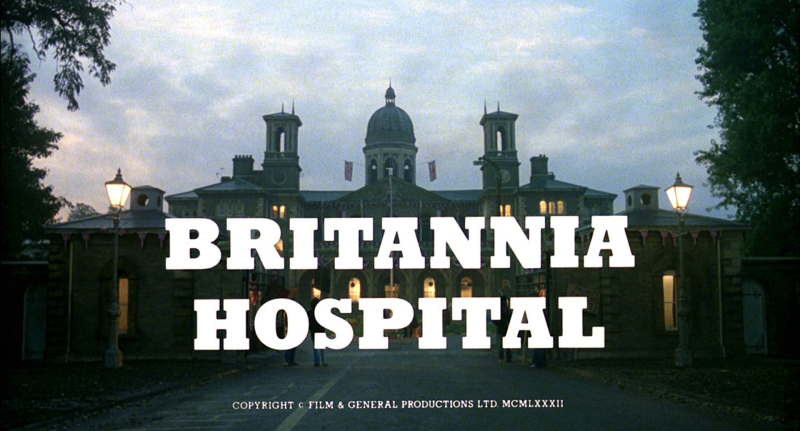
directed by Lindsay Anderson
UK 1982
|
Whilst it may lack the iconic vitality
of 'If….' (1968) or the cinematic daring of 'O
Lucky Man!'
(1973), Lindsay Anderson’s 'Britannia Hospital' (1982) should
nonetheless be regarded as highly as its well-received predecessors in
the 'Mick Travis' trilogy. However, from its première at Cannes – which
witnessed a walk-out by British critics – to the present day, opinion
has generally been slanted against this sideswipe at Thatcherite
Britain. Does this opinion fail to notice the powerful moral questions
that lie beneath 'Britannia Hospital''s caustic exterior? Or does
it choose to ignore them? |
Posters
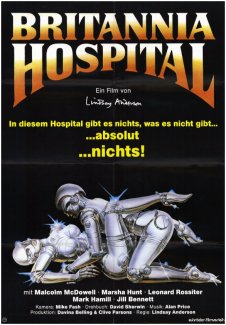 |
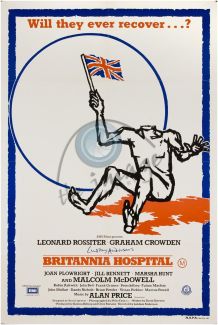 |
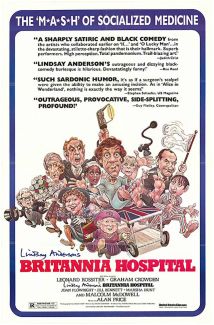 |
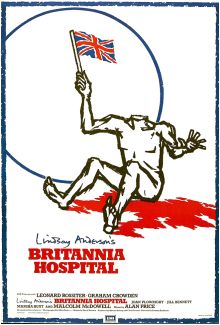 |
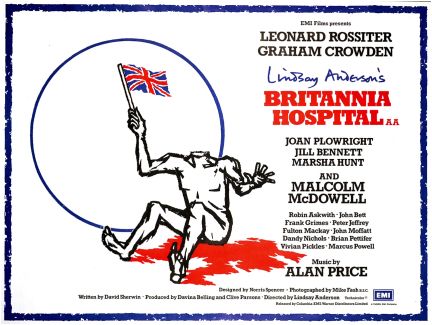 |
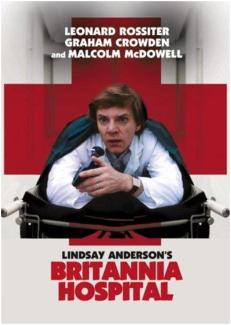 |
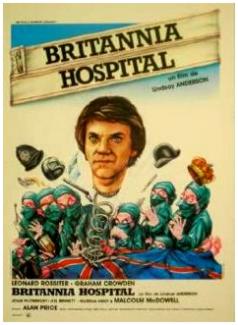 |
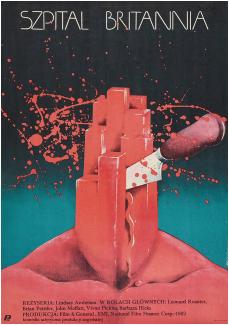 |
Theatrical Release: May 22nd, 1982 (Cannes Film Festival)
Reviews More Reviews DVD Reviews
Comparison:
Cinema Club/Studio Canal - Region 2 - PAL vs. Indicator - Region 'B' - Blu-ray vs. Kino - Region 'A' - Blu-ray
| Box Cover |
or buy directly from Indicator: |
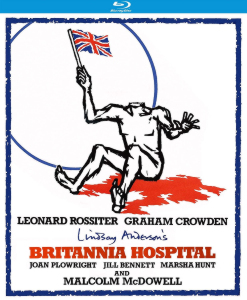
|
|
| Distribution |
Cinema Club/Studio Canal Region 2 - PAL |
Indicator - Region 'B' - Blu-ray | Kino - Region 'A' - Blu-ray |
| Runtime | 1:51:32 (4% PAL Speedup) | 1:56:25.895 | 1:56:37.907 |
| Video |
1.85:1 Original Aspect Ratio
16X9 enhanced |
1.85 :1 1080P Single-layered Blu-rayDisc Size: 24,220,331,705 bytesFeature: 21,510,061,440 bytes Video Bitrate: 21.49 MbpsCodec: MPEG-4 AVC Video |
1.85 :1 1080P Dual-layered Blu-rayDisc Size: 37,455,824,216 bytesFeature: 36,563,767,296 bytes Video Bitrate: 37.93 MbpsCodec: MPEG-4 AVC Video |
|
NOTE: The Vertical axis represents the bits transferred per second. The Horizontal is the time in minutes. |
|||
| Bitrate DVD |
|
||
| Bitrate Indicator Blu-ray: |
|
||
| Bitrate Kino Blu-ray: |
|
||
| Audio | English (Dolby Digital 2.0) |
LPCM
Audio English 768 kbps 1.0 / 48 kHz / 768 kbps / 16-bit Dolby Digital Audio English 192 kbps 2.0 / 48 kHz / 192 kbps / DN -31dB |
DTS-HD Master Audio English 1554 kbps 2.0 / 48 kHz / 1554 kbps / 16-bit (DTS
Core: 2.0 / 48 kHz / 1509 kbps / 16-bit) Dolby Digital Audio English 192 kbps 2.0 / 48 kHz / 192 kbps |
| Subtitles | None | English (SDH), None | English (SDH), None |
| Features |
Release Information: Studio: Cinema Club/Studio Canal Aspect Ratio:
Edition Details: Chapters 18 |
Release Information: Studio: Indicator
1.85 :1 1080P Single-layered Blu-rayDisc Size: 24,220,331,705 bytesFeature: 21,510,061,440 bytes Video Bitrate: 21.49 MbpsCodec: MPEG-4 AVC Video
Edition Details:
• The BEHP Interview with Lindsay Anderson (1991, 1:56 hours): archival
audio recording, made as part of the British Entertainment History
Project, featuring the celebrated director in conversation with Alan
Lawson and Norman Swallow
Transparent Blu-ray Case Chapters 12 |
Release Information: Studio: Kino
1.85 :1 1080P Dual-layered Blu-rayDisc Size: 37,455,824,216 bytesFeature: 36,563,767,296 bytes Video Bitrate: 37.93 MbpsCodec: MPEG-4 AVC Video
Edition Details: • NEW Audio Commentary by Film Historian Samm Deighan• Malcolm McDowell on Lindsay Anderson - An Interview with Malcolm McDowell (11:28) • Theatrical Trailer (3:03)
Standard Blu-ray Case Chapters 10 |
| Comments: |
NOTE:
The below
Blu-ray
captures were taken directly from the
Blu-ray
disc.
On their
Blu-ray,
Kino use a DTS-HD Master 2.0 channel track (16-bit) in the original
English language. I couldn't identify much disparity at all from the
Indicator's linear PCM. It the same or at least very close. Kino also offer optional English
subtitles on their Region 'A'
Blu-ray.
The Kino
Blu-ray
Region 'A' fans of the director should consider
Kino's
Blu-ray
of
Britannia Hospital. The commentary builds
appreciation and I was keen on the
McDowell interview. It's ham-fisted satire at
times but there is some value under the surface. Another good package
from Kino.
Gary Tooze
***
Colin Zavitz
ON THE DVD (2004): This Region 2 Cinema Club release
features a clean, anamorphic transfer – with no obvious digital
artifacts or print damage – which enables 'Britannia Hospital''s
Hammeresque colour-scheme to fizz off the screen. If there is
one problem with the transfer, it is a general lack of detail,
but this in no way detracts from a viewing of the film.
However, all is not positive: the DVD inexplicably comes without
any subtitles, and the extras have been limited to a single
theatrical trailer. |
Menus / Extras
Cinema Club/Studio Canal - Region 2 - PAL
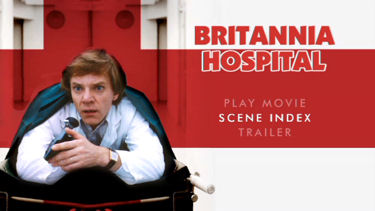 |
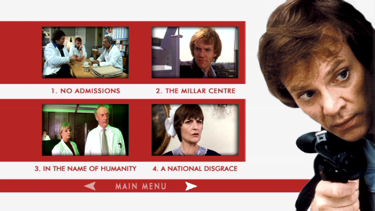 |
Indicator - Region 'B' - Blu-ray
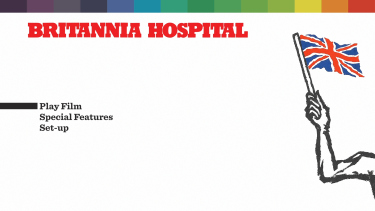 |
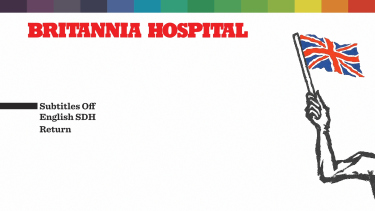 |
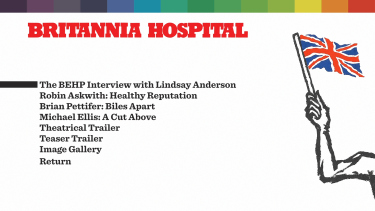 |
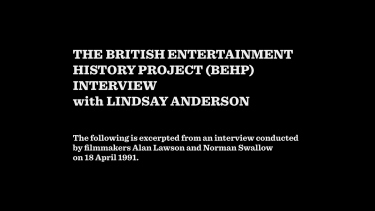 |
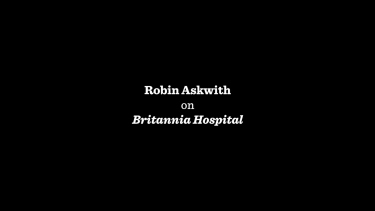 |
 |
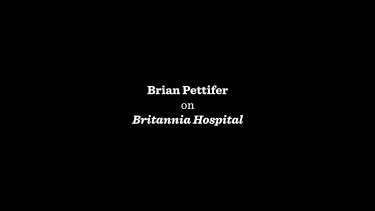 |
 |
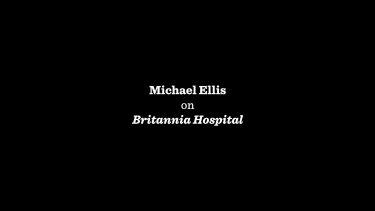 |
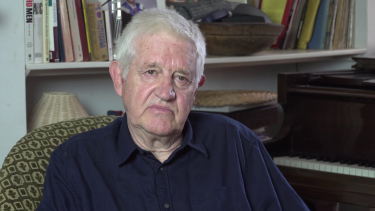 |
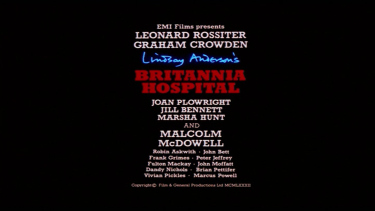 |
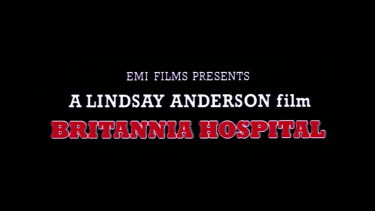 |
 |
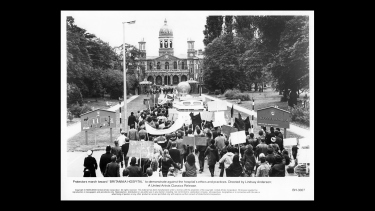 |
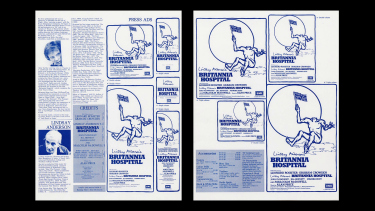 |
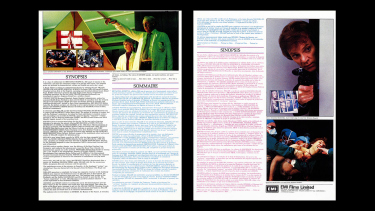 |
Kino - Region 'A' - Blu-ray
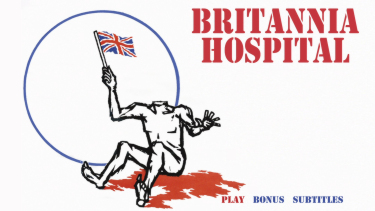 |
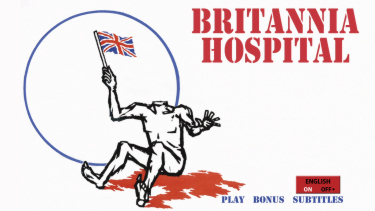 |
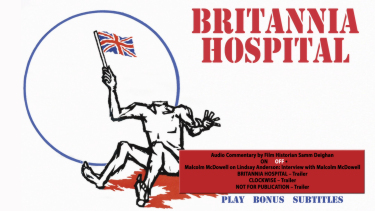 |
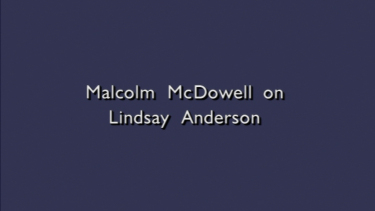 |
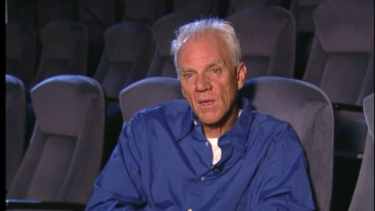 |
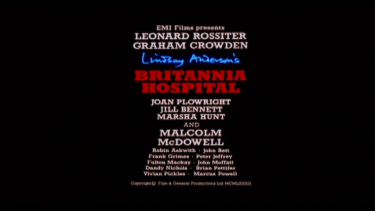 |
CLICK EACH BLU-RAY CAPTURE TO SEE ALL IMAGES IN FULL 1920X1080 RESOLUTION
Subtitles sample
|
1) Indicator - Region 'B' - Blu-ray TOP 2) Kino - Region 'A' - Blu-ray BOTTOM |
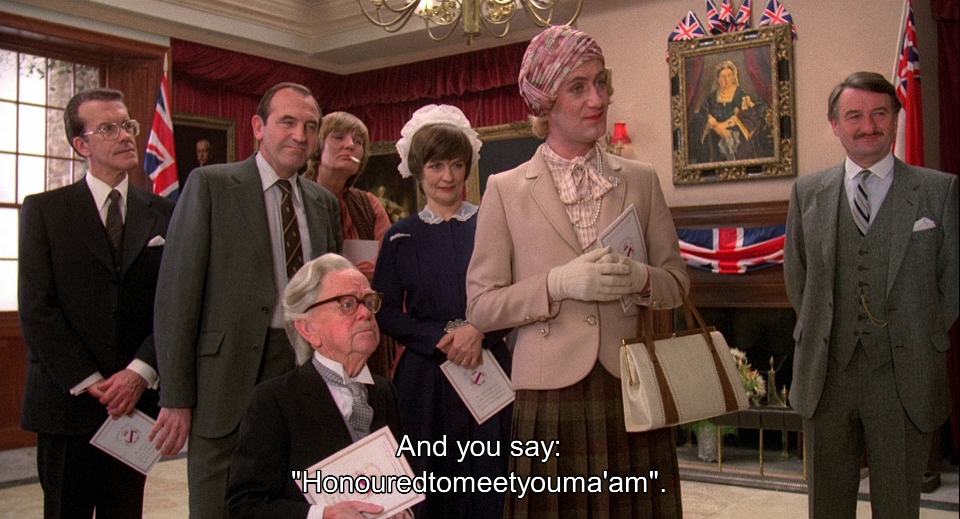 |
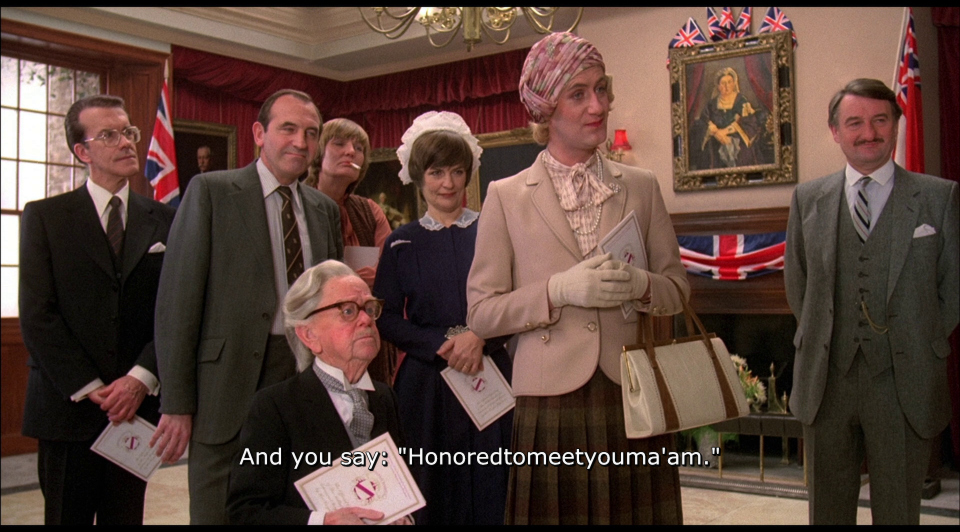 |
|
1) Cinema Club/Studio Canal - Region 2 - PAL TOP2) Indicator - Region 'B' - Blu-ray MIDDLE 3) Kino - Region 'A' - Blu-ray BOTTOM |
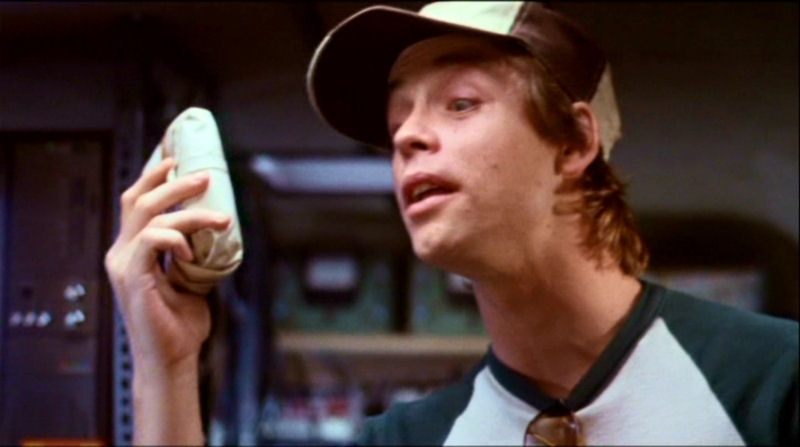 |
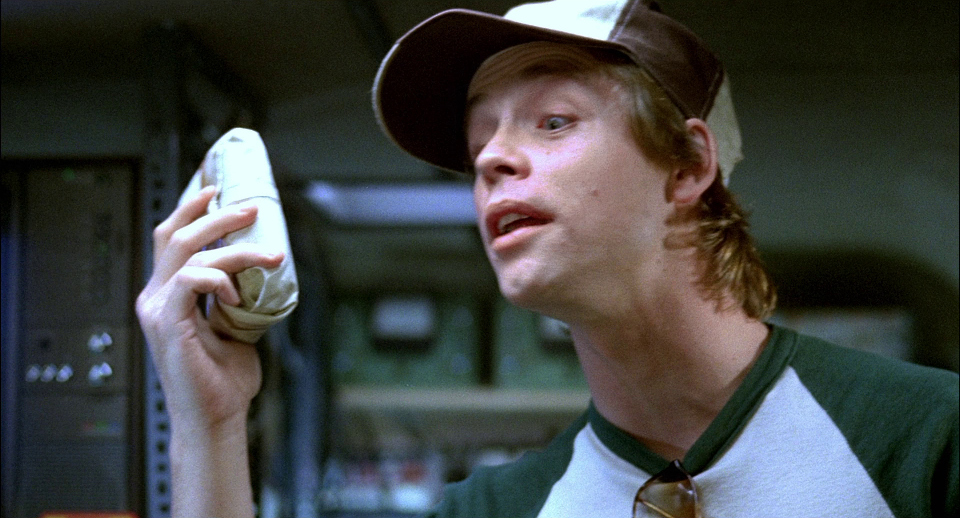 |
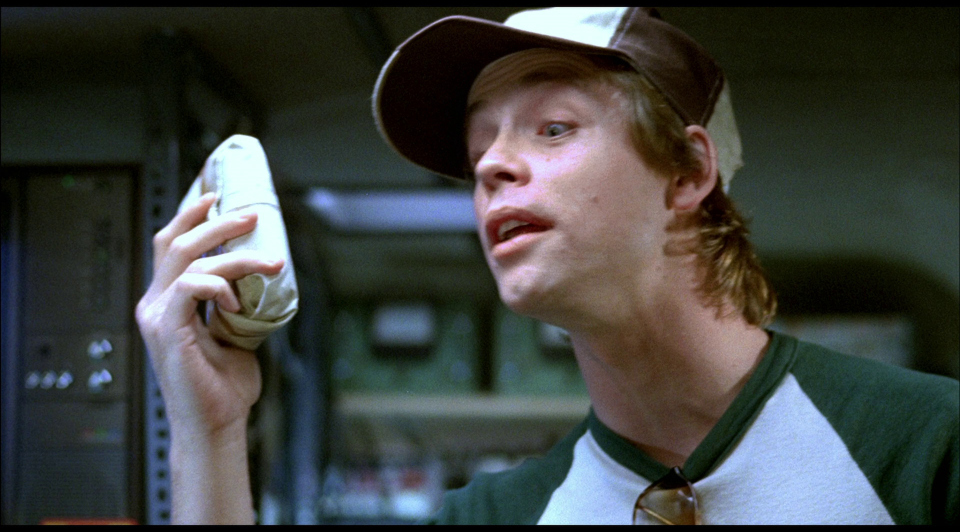 |
|
1) Cinema Club/Studio Canal - Region 2 - PAL TOP2) Indicator - Region 'B' - Blu-ray MIDDLE 3) Kino - Region 'A' - Blu-ray BOTTOM |
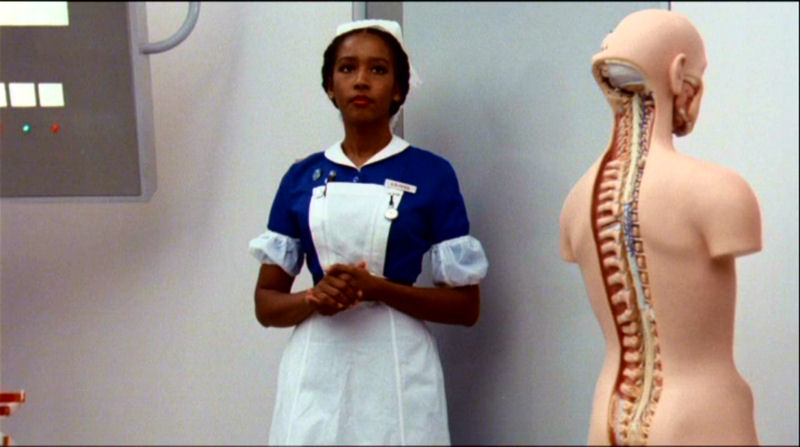 |
|
1) Cinema Club/Studio Canal - Region 2 - PAL TOP2) Indicator - Region 'B' - Blu-ray MIDDLE 3) Kino - Region 'A' - Blu-ray BOTTOM |
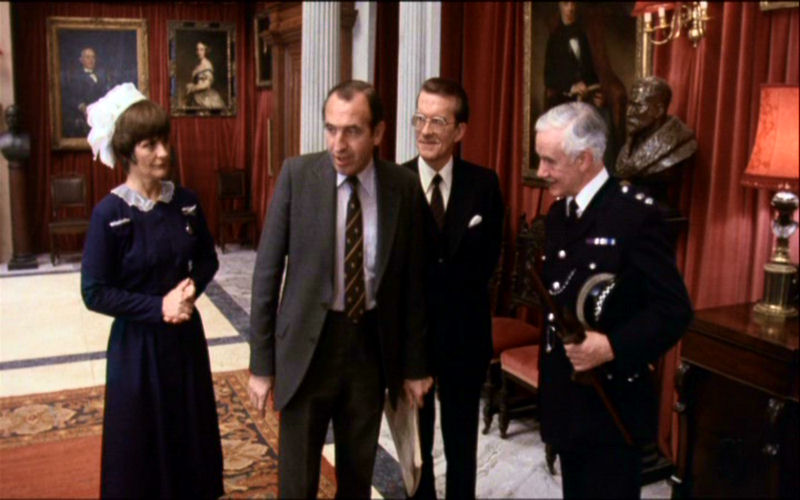 |
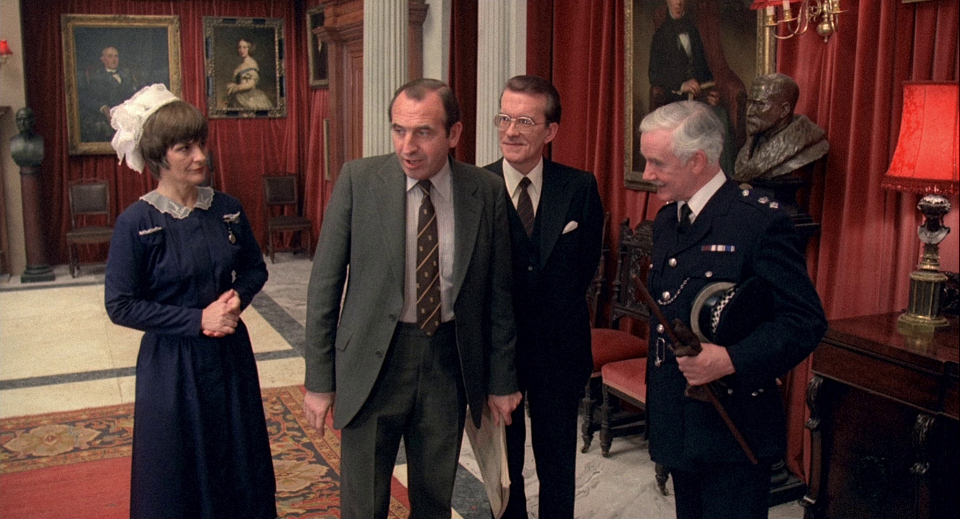 |
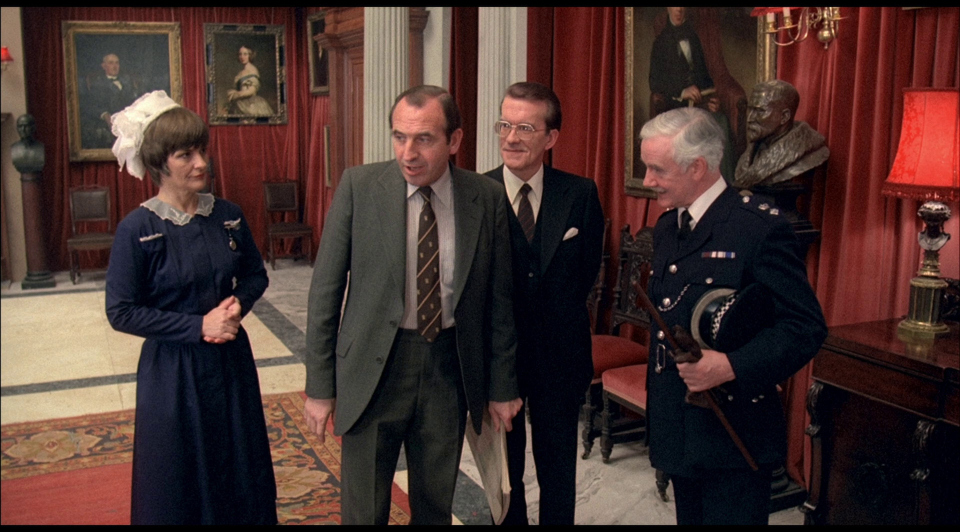 |
|
1) Cinema Club/Studio Canal - Region 2 - PAL TOP2) Indicator - Region 'B' - Blu-ray BOTTOM |
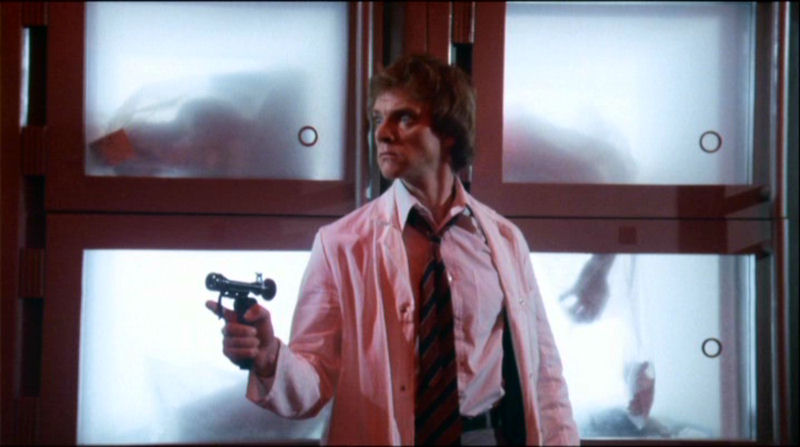 |
| Box Cover |
or buy directly from Indicator: |

|
|
| Distribution |
Cinema Club/Studio Canal Region 2 - PAL |
Indicator - Region 'B' - Blu-ray | Kino - Region 'A' - Blu-ray |
![]()
![]()

![]()
![]()
|
Search DVDBeaver |
S E A R C H D V D B e a v e r |



